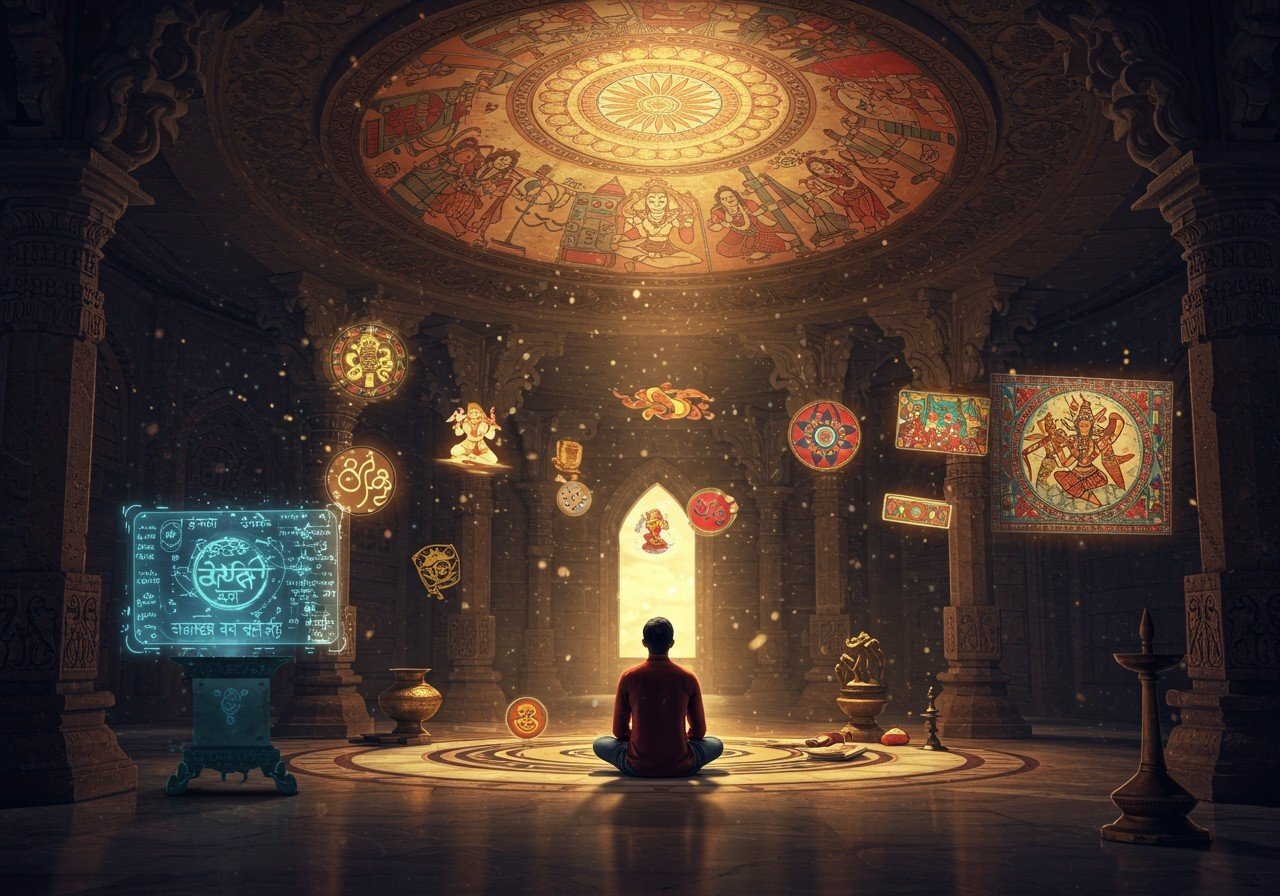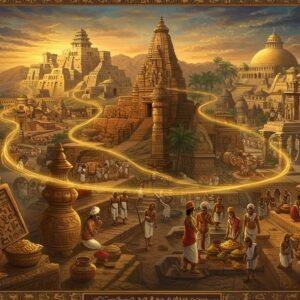
Indology, the academic study of India’s history, culture, languages, and literature, offers a profound understanding of Indian civilization. It encompasses religion, philosophy, art, social structures, and much more. This field is invaluable for those who appreciate tradition and seek authentic knowledge about Indian culture. Indology delves into India’s past and present, providing a comprehensive view of this vibrant civilization.
What is Indology?
Indology is an interdisciplinary field examining India’s past and present through scholarly research. This involves:
- Study of Ancient Texts: Indologists analyze ancient scriptures, manuscripts, and literary works in various Indian languages to uncover historical narratives, philosophical concepts, and cultural practices.
- Archaeological Findings: Excavations and the study of artifacts provide valuable insights into ancient civilizations, lifestyles, and artistic traditions. These findings often complement textual evidence, offering a more complete picture of the past.
- Historical Records: Examining historical documents, inscriptions, and accounts helps trace the evolution of Indian society, political systems, and interactions with other cultures.
Indologists delve into languages like Sanskrit, Pali, Tamil, and Hindi to understand Indian literature and thought. They explore India’s contributions to science, mathematics, and medicine. Indology is crucial for preserving and promoting India’s cultural legacy.
The Meaning and Scope of Indology
The term ‘Indology’ combines ‘India’ and ‘logy,’ meaning ‘the study of.’ It involves a systematic investigation of India’s diverse:
- Traditions: Indology explores the diverse customs, rituals, and practices that have shaped Indian society for centuries, from religious ceremonies to social norms.
- Beliefs: Examining the philosophical and religious belief systems that have influenced Indian thought and culture, including Hinduism, Buddhism, Jainism, and Sikhism, is a core aspect of Indology.
- Practices: Understanding the practical application of beliefs and traditions in daily life, including rituals, ceremonies, and social interactions, provides valuable context to Indological studies.
Indology offers insights into the philosophical and spiritual dimensions of Indian culture. It fosters appreciation for India’s artistic expressions, including music, dance, and visual arts. The field also examines India’s social and political history and its interactions with other civilizations.
Historical Development of Indology
Indology’s origins trace back to the colonial period when European scholars began studying Indian texts and languages. Key figures include:
- Sir William Jones (1746-1794): A British philologist and jurist who is credited with discovering the Indo-European language family, revolutionizing the study of linguistics and laying the groundwork for comparative Indology.
- Max Müller (1823-1900): A German-born philologist and Orientalist who played a significant role in introducing Indian philosophy and religion to the West through his translations and scholarly works.
The field has evolved significantly since then, incorporating modern methodologies and perspectives. Contemporary Indologists employ interdisciplinary approaches, integrating anthropology, sociology, and cultural studies. This development reflects the growing recognition of India’s global influence. You can deepen your understanding of these figures and their impact on Indology through resources like Hinduism’s Global Reach and Hinduism: A Complete History and Origin.
Key Areas of Study in Indology
Indology encompasses various subfields:
- Religious Studies: This area explores the diverse religious traditions of India, including Hinduism, Buddhism, Jainism, Sikhism, and others. It delves into their history, philosophies, practices, and social impact.
- Linguistics: This field focuses on the evolution of Indian languages and literature, analyzing their structure, history, and cultural significance. It examines the development of scripts, dialects, and literary genres.
- Archaeology: Archaeological investigations uncover India’s material past, studying ancient monuments, artifacts, and architectural heritage to reconstruct historical timelines and understand past societies.
- Art History: This area examines the rich artistic traditions of India, including sculpture, painting, textile design, and other forms of visual expression, tracing their evolution and cultural context. You can find beautiful examples of Indian artistry at Poojn.in.
- Philosophy: This field explores the intellectual and spiritual traditions of India, delving into various schools of thought, ethical systems, and philosophical concepts that have shaped Indian culture.
It also includes studies on India’s social structures, political history, and economic systems. For those interested in delving deeper into Hindu scriptures, Hindu Scriptures: A Detailed Exploration is an excellent resource.
Importance of Indology for Modern Indians
Indology offers invaluable insights into India’s cultural identity and heritage. It helps modern Indians connect with their roots and appreciate their traditions. The field promotes:
- Preservation of Historical Monuments and Artifacts: By understanding the significance of these historical treasures, Indology fosters a sense of responsibility for their protection and preservation for future generations. This includes supporting initiatives for restoration and conservation.
- Intercultural Understanding and Dialogue: Indology facilitates cross-cultural understanding by providing insights into India’s interactions with other civilizations throughout history. This knowledge promotes tolerance, respect, and meaningful dialogue between different cultures.
- Critical Thinking and Intellectual Curiosity: The study of Indology encourages critical thinking and a deeper exploration of India’s complex history and cultural heritage. It fosters intellectual curiosity and a desire to learn more about one’s roots and traditions.
Studying Indology encourages the promotion of authentic Indian ritual items and practices. Explore a range of authentic puja items and resources at Poojn.in.
Conclusion
Indology is more than an academic pursuit; it is a journey through India’s rich tapestry of heritage and culture. By exploring ancient texts, historical records, and archaeological findings, we gain a deeper appreciation for our traditions, beliefs, and practices. Indologists play a vital role in preserving India’s cultural legacy and fostering appreciation for its artistic expressions and contributions to various fields. For modern Indians, Indology is a way to connect with our roots, cherish our heritage, and navigate the complexities of our cultural identity in a globalized world. Embrace the study of Indology to honor our past and enrich our future.


